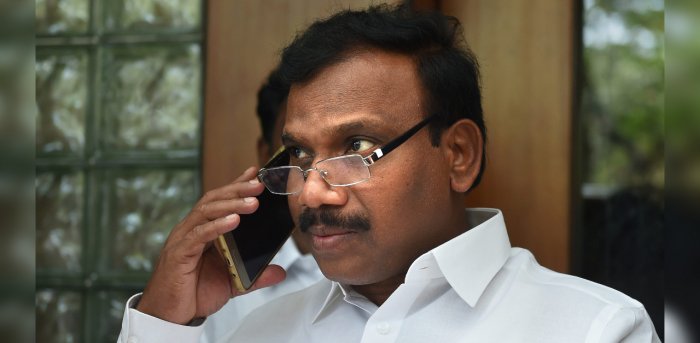
By Kavitha Muralidharan

It was a mask not many had expected to fall. In the course of heated campaigning in Chennai on a sultry March day, former Union Minister A Raja – often seen as the intellectual face of the Dravida Munnetra Kazhagam (DMK), and perhaps rightly so – turned into what every male politician (and sometimes female politicians, too) aspires to, at least once in their career. A casual misogynist.
Drawing parallels between his own leader, M K Stalin, and Chief Minister Edappadi Palanisamy, who belongs to the All India Anna Dravida Munnetra Kazhagam (AIADMK), on March 26, Raja said that the former was a healthy baby born as a result of a legitimate relationship while the latter was a premature baby resulting from an illicit relationship.
The remark was wrong at many levels. It is judgmental, yes, but more importantly, the remark also ridicules pregnancy and childbirth, and the complications associated with them. This was not the first instance of casual misogyny to happen during this election, nor will this be the first election to have such misogynistic tones in campaign speeches.
Much before A Raja made the derogatory remark, Dindugul I Leoni – a popular orator and a DMK spokesperson – remarked how women’s bodies were now like barrels, and not like the figure ‘8’, because they were drinking the milk of foreign breed cows. “The babies do not stay on the hips these days,” he said.
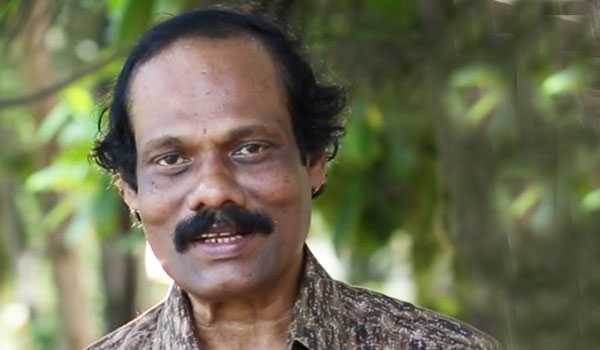
Between Raja and Leoni, there was another office bearer of the Tamil Nationalist Naam Thamizhar party – which had ironically fielded women in 50 per cent of the constituencies – who criticised DMK’s poll promise of free sanitary napkins. “Aren’t we good enough to buy sanitary napkins for our sisters and mothers? Are the Tamils (men) so worse? If you launch this scheme, who will you hand the first napkin to? To Kanimozhi? Dayalu Ammal? Or Rasathi Ammal?” he had asked.
Of what use is reservation for women by the party if the campaign by its office-bearers reek of patriarchy and chauvinism, besides of course casual slander? If Tamil men take the free napkin scheme (which, incidentally, has worked very well in some states) as a personal assault on their ego, why shouldn’t Tamil women also be offended by the suggestion that only men can buy them napkins? Tamil women actually have a long history of being valorous and fiercely independent.
But casual misogyny is not an aspect of this election alone.
The Tamil political landscape has sexism written all over it, sometimes in capital letters. Sadly, sometimes women, too, perpetuate such attitudes. Jayalalithaa, who is often seen as the lonely warrior struggling in an all-male world, has made slanderous remarks about DMK MP Kanimozhi in her campaigns. Another woman leader accused Jayalalithaa of not being ‘fit to rule’ because she had ‘no family.’
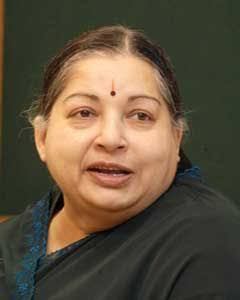
During the ongoing election season, an AIADMK office-bearer has made a defamatory, crassly misogynist remark about DMK youth wing leader Udayanidhi Stalin and a well-known actor. During the campaign he had also heaped personal slurs on Kanimozhi.
Senior BJP leader H Raja, who is now a candidate in Karaikudi Assembly constituency, had in 2018 tweeted an indirect reference to Kanimozhi as an “illegitimate child born out of an illegal relationship.” He has now condemned namesake A Raja’s recent remarks.
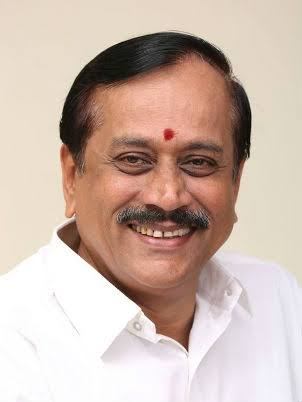
Despite its progressive face, Tamil Nadu’s political landscape is not without its share of sexism. Much before social media became the norm of the day, the ‘pechalargal’ or ‘speakers’ of almost every political party in the state would often be seen and heard using vulgar language and personal insults at public meetings. But these stand-in speakers, who preceded the main scheduled speakers, generally remained in the background politically, rarely making it into the mainstream. However unjustifiable their distasteful remarks were, their reach and influence were limited. In the world of social media frenzy, these ‘speakers’ have been replaced by nameless, faceless trolls.
In this entire sordid episode of blaring sexism the silver lining is the response of women leaders. Kanimozhi especially put out a strongly worded tweet: “Whoever the political leader is, to pass derogatory comments and personally slanderous remarks against women is condemnable. It is good for society if everybody remembers this. This is the social justice that the Dravidian movement and Periyar had aspired for.” Ironically, the responses from the troll brigade to the tweet represented exactly what she had spoken out against. The trolls, too, were protesting against Raja’s remarks but by essentially following in his footsteps.
That is the power of misogyny for you.
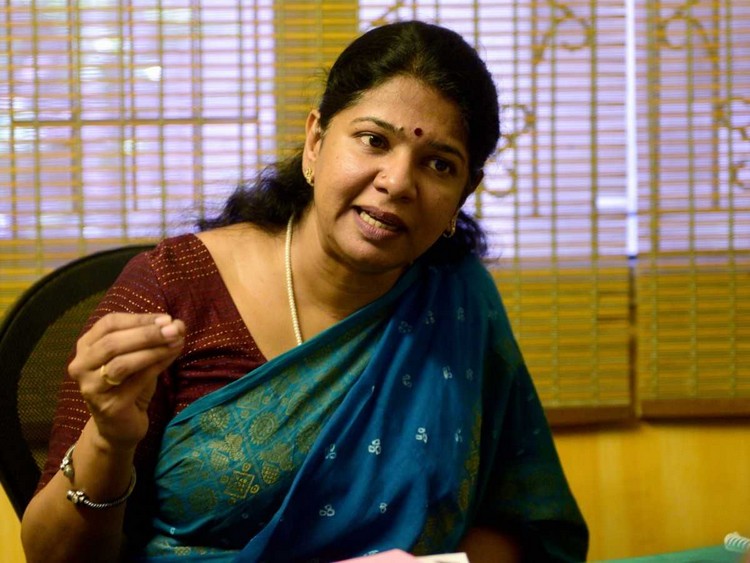
Meanwile, DMK President M K Stalin also asked his party leaders to exercise caution during campaigns. “We believe in duty, dignity and discipline.” A Raja, on his part, said he drew the analogy to explain the difference between Stalin and Palanisamy, and had not intended to cast aspersions on Palanisamy’s mother as had been made out on social media through shared video clips.
But the more important question to emerge from this debate will, for me, be this: How removed is misogyny as an idea central to everyday existence from our normal lives? How angry are we about everyday, casual sexism in our lives, which perhaps indirectly drives our political discourse, too? I can perhaps explain the point better with the example of Dindugul I Leoni.
Leoni’s claim to fame is the fact that he used to be a judge in ‘pattimandrams’ (popular, stage-based debate shows) and will perhaps continue to judge such events in the future, too. A cursory glance at such pattimandrams – a regular feature on television during special holidays like Diwali – would expose their intrinsic misogyny and sexism. Sample the topics of pattimandrams that Leoni has participated in over the years: Thaaya Thaarama? (Mother or wife?), Magizhchiyaana vaazhkai thirumanathirku munba thirumanathirku pinpa (Is life happy before marriage or after marriage?), Kudumbathin magizhchikku perithum kaaranam maganaa magalaa? (Who is more responsible for family’s happiness – son or daughter?), Pengal perithum magiznthiruppathu pirantha veetila puguntha veetila? (Are women happy in their parents’ houses or in-laws’ houses?)
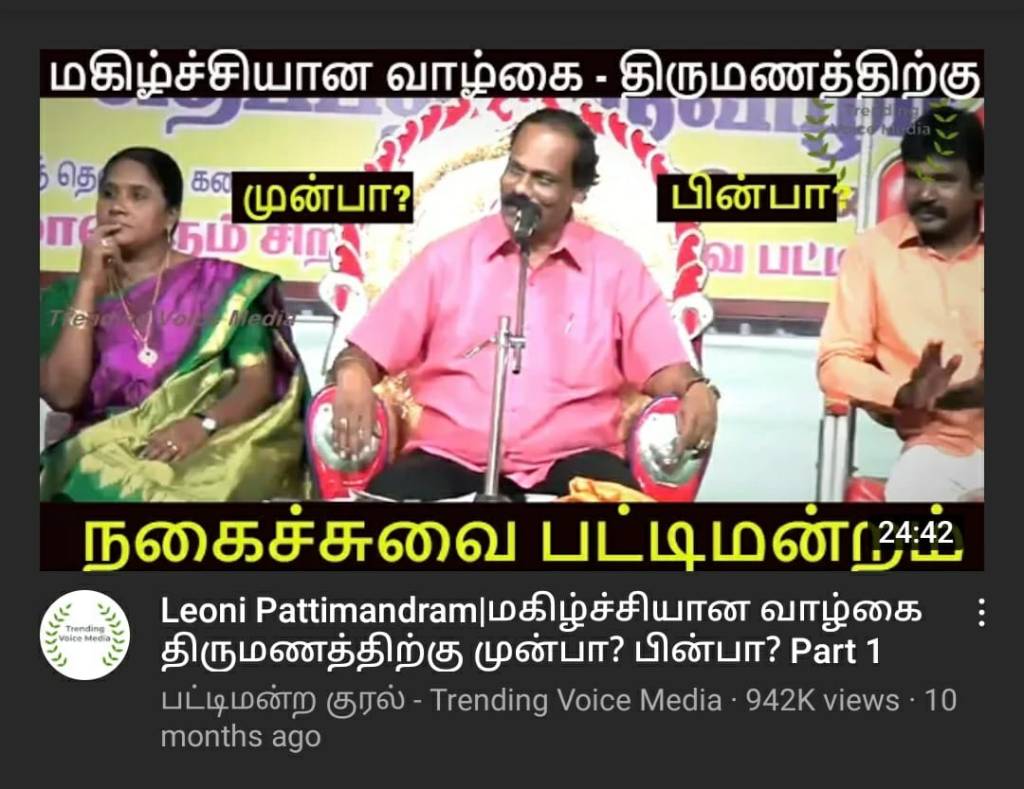
If we are among the audiences of such shows, nonchalantly laughing and putting our hands together to encourage the sexist jokes that flow freely in them, aren’t we also egging Leoni on to make such crass remarks on stages that are more politically mainstream as well?
The argument can be extended to the taboos around menstruation in both urban and rural spaces in Tamil Nadu. I can also never tire of wondering how we happily consume patriarchy and misogyny on a daily basis through our television serials and films.
Of course, we expect our politicians to behave better because they set precedents and examples. The change has to begin with them because they claim to be leaders. Perhaps they can begin by at least listening to the women in their own parties?
UPDATE
DMK leader and Nilgiris Lok Sabha MP, A. Raja, apologised for his recent remarks about Tamil Nadu Chief Minister Edappadi K. Palaniswami on Monday, 29 March, reiterating that his words had been “taken out of context.” At a press meet held in Udhagamandalam, he said his remarks were only intended as an analogy to make a broader point about the emergence of Mr. Stalin and Mr. Palaniswami as political leaders, but had been interpreted differently for political reasons. Adding that he was pained to hear that Mr. Palaniswami had been hurt by his remarks, he said he regretted any offence caused to the CM or his mother. “I will go one step further and say that if Mr. Palaniswami was hurt personally by my remarks, I offer my heartfelt apologies,” he said.



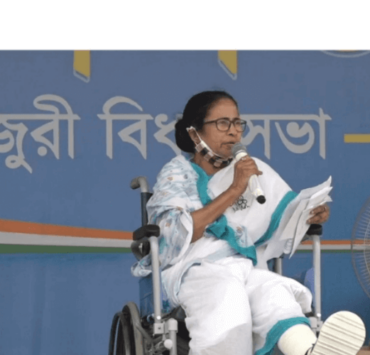
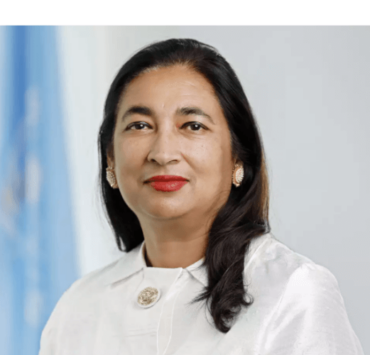
Dindigual Leoni is not a spokesperson of DMK. He may be a card carrying member of the party taken in as an exciting activist for DMK propoganda but not its spokesperson at all. He looms large in our imagination because of his pattimanrams (debate shows) where he uses low grade humor. A spokesperson is an official party post, and any lapses by the person holding it, will cost him the post. For e.g. DMK removed its spokesperson and suspended him for a long time, some time back. He is now restored. He made some embarrassing remarks.
For the misogynistic remarks by A Raja who holds an important portfolio in the top hierarchy of the party, the party can be hauled over coals. DMK President issued a warning to him albeit by not naming him directly. For Leoni’s remarks, the party is not responsible although the warning is also for him. The article refers to lower ranking speakers who routinely make such remarks from public stage. Leoni is to be clubbed with them.
All parties have such speakers. The author singles out Leoni in a separate para. He is not the only one linked to Pattimandram, the debate shows that delight the crowd with such remarks. Almost all pattimanrams moderated by a variety of men and even women are also like Leoni’s. The pattimanrams are broadcast by all TV channels and the channels run by all groups, incl DD Podhigai. Women participate in the debate as entertaining speakers, and also in the audience humgously. In religious discourses within temple premises also. 🙂
The author may attend the religious discourses, the so-called upnayasams where ‘sexism’ is on spelendid display. Who do we blame for ? Secondly, it’s not politics and the pattimandras alone that encourage misogyny but the whole social life, even in ads for all kinds of items, school texts, poetry that the author has read at school, Maha Kavi Bharti’s remark ‘pettai pulambal’, Kavimani Desiya Vinayagam Pillai’s famous poem that it is in the women’s hands that he social morality is entrusted with, not men’s who can live they please etc. The private and public life is awash with misogyny and, of all, it is women who take the misogyny with gusto.
The author writes //Tamil women actually have a long history of being valorous and fiercely independent.// A false statement. Tamil women encouraged and supported men in the practice of misogyny and any voices against it are heard only now, that too, from journalists and a few others. While Vanathi Srinivasan, the BJP candidate standing against Kamal hasan in Coimbatore South, decried Raja’s remarks and sought for his apology, she kept mum while she was standing along with Radha Ravi a few days ago on an open van and while he was canvassing for her and making abusive and horrendous misogynistic remarks attacking Kamal’s private life and the women in his life. What was Vanadhi Srinivasan doing when H Raja made misogynist remarks against Variamuthu’s mother calling her prostitute and Kanimozhi an illegitiamate child? What were ADMK women politicians doing when Jayalitha said A Raja is Kanimozhi’s illicit lover? The women politicians and other women are selective in their attack. For these women, what is misogyny in A Raja is not so when it is made by those who these women hero-worship or heroine-worship.
I used the word ‘sexism’ here at one place above whereas the author uses it as an equivalent expression for misogyny. Sexism is subordination, by whichever means, of women to men. For e.g.if a Co disqualify women for promotion once they are married, as for Air hostess, or a political party does not give equal representation in their nomiantion as election candidates, (as being done now by DMK and ADMK who nominated a few number of women only), this is sexism. A Raja’s and Leoni’s remarks are squarely misogynist, but not sexism.
Premature babies can be born from both from illicit or licit relationship. It depends on the woman’s health. The author assumes otherwise.
//A Causual Misogynist// is repeated in the article. No ! There may be open, wanton and brazen misogyny or veiled one. But never casual. Because all misogynist remarks are made consciously. T Both Rajas, Jaya and Leoni were aware of what they spoke with the clear intention to hurt. The author appears to bear soft heart for, what she calls, casual misogyny implying that she cares only for ‘serious misogynt’! She also writes //Casual Sexism//. All misogyny and all sexism are never casual. They are serious for those who are hurt or victims.
In all State politics and Indian general life (even aborad too – read today interview given to TOI by Prof Linda Scott of Oxford University), misogyny is rampant and internalised as normal life – even by women. Grandilogquent pity 🙁